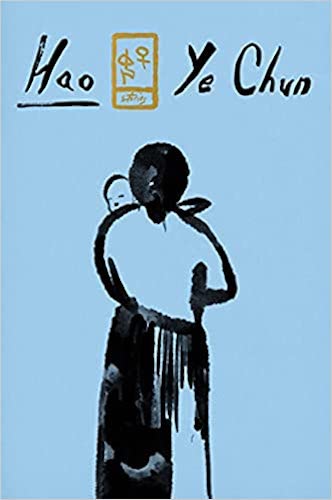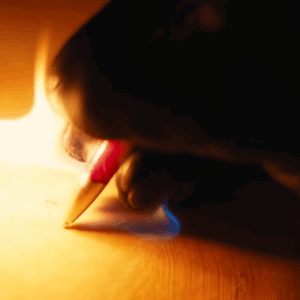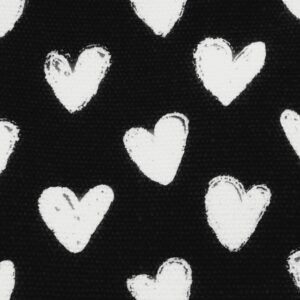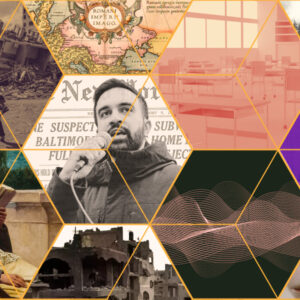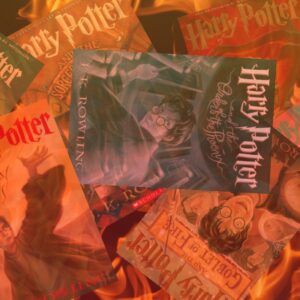There is a fertility rock on the northern shore of Pagsum Lake, a few hundred kilometers east of Lhasa. Lanlan reads online that the rock is shaped like a woman’s vulva, with all the lips, creases, and clefts in the right place, amplified multiple times, smooth to the touch like female skin. Women from far and near travel there to pray for a child.
Lanlan had a miscarriage due to “abnormal” uterine lining—according to the diagnosis of the specialist who wore one strand of hair wrapped around his bald crown. Groping his hair to ensure it was in place, he asked her if she’d had an abortion before. She answered no, but he continued as if he did not hear her, “Some young women think they can abort their children as freely as they want, but everything has consequences.”
“I’ve never had an abortion before,” Lanlan said again, her face flushing, which she knew could be taken as a sign of deception. Her husband Li Qiang was looking at her, his eyes already skeptical. The doctor turned to him. “Either way,” he said, “your wife’s uterine lining is abnormal. I’m afraid she will have another miscarriage if you try again.”
*
When she hit thirty, Lanlan suddenly wanted a child. She wanted it badly. And she approached her desire methodically—calculating her ovulation, measuring her temperature, and, asking Li Qiang to do it for her, she phrased her request like a threat: I don’t think our marriage can go on without a child. He looked thoughtful, as if he was considering what this would mean for him, what he had to lose or gain from it. Maybe he wanted to be a parent too. Maybe he dreamed of a son who would not be like him, the way she dreamed of a daughter who would live a different life from hers.
Lanlan was fifteen when it happened—in a wild date grove on the hill by the railway that cut through the middle of her small hometown, Luzhen, which was known for nothing but spicy dry tofu. The grove was said to be haunted and Lanlan had gone there before, with the same neighborhood boy, when she was younger. They had waited until dusk to see if the rumored ghost fire would rise above the rugged gravestones that were scattered among trees and weeds. They had held hands when they ran down the hill screaming at the first glance of a possible blue glimmer.
She had known the boy since kindergarten, and that year, when they both turned fifteen, he hit a growth spurt: his hands, in particular, seemed to have doubled their size. She couldn’t help but stare at them. When he said he wanted to show her something in the grove, she thought he would show her the real ghost fire, or more probably, he would confess to her that he liked her. She wasn’t in love with him, but she felt lonely and wanted something. As they climbed side by side up the hill, she wondered what it would be like to hold his alarmingly big hand. He was quiet. She pressed him to tell her what he wanted to show her. He said she would find out soon. He tried to smile, but his face looked dark. She was suddenly afraid. When they came to a clearing where the two other boys each sat on a tombstone, she thought they were ghosts at first. The next moment, the boy’s large hand was on her mouth. When they pushed her down, the train rumbled past, and the ground beneath her shook and shook.
*
She told Li Qiang nothing about it. Regarding her past romance, she told him this: She had one boyfriend before him, a boy she had first seen when riding her bicycle to school, who, about halfway, would appear from the opposite direction riding his bicycle to another school. Then, one day, he was waiting for her in front of her school gate. But it didn’t work out: they got into different colleges and eventually grew apart.
The night after the doctor’s visit, she extended that version, sharing with him a piece of truth minus everything leading up to it. She told him about the crusty-eyed doctor whom she found by dialing a number scribbled on an electric pole. The man wore a reassuring white lab coat and mask, but the room reminded her of a public toilet, with its faint stench and unpainted walls and ceiling. Anyway, she told Li Qiang, it hurt so much that she thought she would die there and then.
They were lying in bed. Li Qiang reached out and touched her hand. She moved closer to him, but he put a knee in between them, even though he continued to stroke her hand. “It’s okay if we don’t have a child of our own,” he said. “We can adopt. Or we can just live the way we were.”
She could see what it would be like to live the way they were: Li Qiang would be out with his “buddy” Ah Lun five nights a week, claiming they were playing badminton in the gym; she would debate with herself whether to track them down and catch them in bed somewhere. And feel cheated, stupid. But then what?
*
On the computer screen, the fertility rock looks small, shadowy, contoured with two white khatas to highlight the stone vulva. Otherwise, most people probably wouldn’t look at it twice. But it does have those embarrassing pleats once Lanlan enlarges the photo.
On her first day in Lhasa, after checking into a fly-infested hotel, Lanlan gets on a rickshaw to the Potala Palace, which was in her view for most part of her minibus ride from the airport—first from afar like a painted rock formation on the mountaintop, then this magnificent palace pulling pilgrims in woolen chuba toward it. Now she rides past them as they spin prayer wheels and mutter mantras. Some prostrate after each step forward, their foreheads callused, long braids dusty.
After the driver lets her off in front of the stairs leading up to the palace, a weight suddenly drops in her head and legs, which she figures a moment later must be the altitude sickness. She sits down on the curb before dizziness can trip her and rests her head on her knees. She laughs quietly to herself. Here she is: in front of the highest palace in the world but hardly able to move. The sun pours out. People swirl. She feels calm somehow, like the eye of a storm.
She thinks of herself as a survivor. She has managed to get into a college and away from her town. She has dated, made advances, and each time as she climbed onto another boy, she wanted to feel a salvation. She would not lie down, not allow them to ride her. But it did not take much, a glint in the eyes, a grunt in the throat, to make it all come back again.
Li Qiang is different. When occasionally he does have sex with her, at her request, he enters her from behind. Sometimes she rides him, in the dark. They never keep the light on. She never has to ask for that. He is gentle, incapable of doing the kind of things the three boys had done to her. She feels safe with him, if not dishonest. Sometimes she wonders how he and Ah Lun do it. She is sure they’ve been doing it—maybe they are in their bed right now. But he’s not going to give her a divorce. She has asked, yelled, and they’ve wept together. He wraps his arm around her when they have company. While at night, in bed, they continue to lie on opposite ends like two question marks.
Maybe she can continue to live like this if she has a child, a daughter, to be specific—while everyone else wants a son, she wants a daughter. She will not allow what happened to her to happen to her daughter. She will be a good mother, present, unlike her own mother, who had made it clear that she’d wished her to be a son the moment she was born. And who had paid thousands of yuan in fines just to eventually have one. That was why Lanlan couldn’t tell her mother anything. She was on her own. Has always been.
Lanlan sits on the curb until the sun sinks and cold rises from the ground. She shivers, raises an arm to a rickshaw driver, and asks him to take her to the nearest hospital. There, she is given a rubber bag pumped full of oxygen. She lies down on a cot, holding the bag like a float, and inhales.
*
She wakes up the next morning to the buzzing of flies, each green-headed and ferocious. It takes her a moment to remember where she is and what she is doing here. The fertility rock. But it seems rather ridiculous now to take a four-hour bus ride just to go see a rock. A rock is a rock, no matter how it is shaped. The power of faith seems flimsy with her lingering headache and the black flies spinning above her, chanting their tireless I want, I want.
Instead, she comes to the Potala Palace again, determined to climb up the stairs this time. Entering the gate, she sees a young lama seated on a stool by the corridor wall, scribbling something in a notebook. In a saffron robe with one shoulder bare, he has the pronounced Tibetan brown complexion and angular nose and chin. He is very young, perhaps not yet twenty. On his shaven head, new black hair seems to be pushing out this very second. He looks up.
“What are you writing?” she asks.
“A love letter,” he says.
“To a nun?” she says and quickly laughs.
He is a resident lama who works part-time as a tour guide. His name is Dhargey, which, he tells her, means progress, development, spreading. He gives her a tour around the murals and statues, amid thousands of flickering flames of yak-butter lamps that look like thousands of miniature sunsets.
In one of the galleries, she sees a row of bronze statuettes with naked female figures mounted on the laps of naked male figures who sit cross-legged on lotus thrones. Some of the males have spokes of arms. Some wear crowns of skulls. Some twine their arms around their female partners’ gleaming torsos. The females’ faces are hidden or seen only in profile, with tongues extending toward the males’ mouths.
“They’re yab-yum, symbolizing the union of compassion and insight,” says Dhargey in a matter-of-fact voice. “The male deity represents compassion; the female represents insight; their union, enlightenment.”
Lanlan tries to keep her face neutral. But in her head, she sees two faceless bodies of flesh, not bronze, looped around each other in the yab-yum position, fusing, igniting. She sees her rickety bed in the fly-swarming hotel room. A vision clearly wrong.
The yak-butter lamps leap and tremble, like heartbeats in flame, burning away dimness however small.
That night, lying in her hotel bed, she imagines sitting on Dhargey’s lap, in the yab-yum position. She will feel him harden, feel the urge to move, to pull. Do the male and female deities not feel pleasure fused in that position? Do they not think of a child, a physical one, instead of, or in addition to, metaphysical enlightenment?
But she will just have another miscarriage, maybe again at work, like last time, inside a restroom stall: the cramps, the gray sac the size of a Ping-Pong ball bobbing among dark blood and clots in the toilet bowl. It was a relief not being able to see through the blood and mucus to what curled inside.
*
The fertility rock stands on a pile of erratically shaped rocks. It’s about the size of an adult head. She wishes it were larger, more grandiose, something one could look up at like a monument. The size of a door, perhaps, that would allow an adult to pass through. Tourists are taking photos in front of it, joking, giggling. Lanlan stands away from them. The only person praying is a Tibetan woman who is about Lanlan’s age, her palms closed, eyes closed, her forehead lowered to her fingertips.
Lanlan waits until the tourists trickle away. Then she closes her eyes and puts her palms in front of her chest like the Tibetan woman.
If it is possible to backtrack. If she had not gone to the date grove with the boy with big hands, whom she had to see again and again at school and in the neighborhood, as her body raged inside. If she had said hi to the boy on the bicycle a day earlier, had waited for him at his school gate, the way she imagined he’d do for her.
But it could have been worse. They could have killed her, the three boys who are now in their thirties like her, living their lives in that same old town, raising children as though nothing had happened. Or the bogus doctor who held the thing up in his gloved hand like holding a half-pound meat at the grocery. She had covered her face, believing he would toss it at her the next moment.
She opens her eyes and looks at the earth mother’s stone vulva—its lips and creases ossified, bearing no exit or entrance.
She dozes off on the bus ride back to Lhasa. She is inside the rock, in a dark purple pool of water, with the Tibetan woman. Both of them have shrunk to the size of an infant, but they look just the same, with wrinkles starting to line their faces, and eyes wavering but fiery. The woman says something to her in Tibetan, and then swims toward what appears to be an island in the center of the water. Lanlan does not understand her but follows anyway. It is actually a tree. She sees as she swims closer, a floating banyan tree.
The woman holds on to a dangling root and looks up. Lanlan swims to her side and does the same. She sees children of different ages and sizes swing among its branches, its aerial roots tied at the end where they sit and swing. They look all right in their perpetual swinging, like planets orbiting.
But then Lanlan sees these children’s eyes. They are not blinking. Their faces are equally blank. They make no sound. Even their legs are not moving. The aerial roots are swinging by themselves. And there is no light. The tree grows in the dimness, upon whatever life is left in these children.
The Tibetan woman reaches out to a little girl near her. It seems she is trying to stop the child from the swinging, to hold her and rock her back to life.
*
During the next few days, Lanlan wanders around the city, this holy land where tourists like her are all looking for something. They are like her, she thinks, giving away change to vagrants on the streets, as they would not do in their own cities, where they have become callous at their sight. They are recovering a better self, trying to be closer to the Buddha-nature.
There are many vagrants. Many look like they’ve traveled from far-off mountains and prairies, wearing thick chuba, carrying their few belongings in woolen bundles. Many are with small children, who have a peculiar way of gazing at you, their dark eyes severe, unblinking. They make Lanlan remember her dream and the children swinging in the tree. She seemed to have seen herself there too, her fifteen-year-old self swinging among those children, though she had not remembered herself to look that young at fifteen.
One morning, while eating a steamed bun from a street vendor, Lanlan is startled to see a child standing right by her, gazing up at her face without a sound. She stops chewing. She looks around and sees a woman watching them from a dozen meters away. Lanlan buys two more buns and places them in the child’s hands. The child runs to his mother, who smiles and nods at her. Lanlan smiles and nods back. She feels good for a moment, and then she feels sorry, so sorry she wants to hold on to the mother and child and cry.
At night, lying on her hotel bed, she imagines not going back to her low-altitude city, which is like a dust-bowl, and she, a particle of dust blown back and forth from home to work, work to home. Instead of going back to that threadbare life, she will withdraw all her money from her bank, give it away, and then she will be one of them, hunkered on the roadside in tatters, her empty palms held out in the sun, begging from those who have wronged or been wronged elsewhere in the world.
“Here, keep this.” They will hand her a dirty, wrinkled one-yuan bill. And she will take it as though she is giving them a blessing.
*
The day before her departure, Lanlan returns to the Potala Palace. She stands again in front of the largest Buddha statue in the central hall. She has stood in front of many Buddha statues by now. They are everywhere: the low-cast eyes, the full, round face. She has felt her heart rattle but does not know if it is real, or if it’s only what she’s supposed to feel, standing below the immense, soft eyes that seem to care about you and know what you have been through and tell you it’s okay. You are still loved. I feel your pain, because I saw it. When it happened, I saw everything.
Dhargey is giving a tour to a foreign woman, his English accented but comfortable, like his Mandarin. The auburn-haired woman nods and touches his elbow: she looks a little too eager as she leans her face to him. And Lanlan sees her own self in this woman who has traveled even farther to get here, to look for something or redeem something, and to see a temporary illusion in this young Tibetan boy who has no fault, no dark history, who is supposed to practice emptiness, detachment, and reject the flesh that she and the woman each carry with them.
Lanlan follows them, trying not to be noticed. They come to the yab-yum gallery. Dhargey is now reciting the symbolism of the naked intertwined shiny statuettes in the same matter-of-fact voice. Lanlan can see that he too is trying to keep a neutral face, but his eyes and bare shoulder betray him. He must want, too. How can he not? He must want and want to be wanted. He is ordinarily vain too, enjoying the lone tourist’s shy fascination. He must wonder if these women ever imagine getting into that showcased position with him—if only he would let them climb onto him, hold them tight and be the embodiment of compassion, giving his beautiful body to them so that they could obtain enlightenment and carry it back to where they are from. Be whole again.
Lanlan is about to turn away before he sees her. He says something to the other tourist and walks over.
“It’s you,” he says. Not a question, but a statement, as though he has been expecting her. It could have been what the boy on the bicycle said to her had she waited for him in front of his school gate, or somewhere on his way home, riding into his view.
“Yes, I was looking for you. I want to say goodbye before I leave. Say thank you.”
“For what?”
“For showing me around.”
“You’ve thanked me already.” He chuckles.
The other woman is waiting for him to come back. Their eyes meet: he is only a boy, they seem to say to each other.
“Formally, take you to dinner. Good-bye dinner,” Lanlan says.
*
She waits for Dhargey outside the palace. The sun is slanting but still strong—the sun that loves the bruised, the childless and aging no better or worse. The moon is also in the sky, half-full, transparent, cool, watching her like a distant mother who has finally offered her attention.
Dhargey exits the gate in a navy jacket, blue jeans, and baseball cap. He smiles self-consciously, as though he is not sure what she will think of him in this layman outfit. Whether he has lost some charm or potency without his saffron robe and shaved head. Or maybe he is simply not sure about going out with a tourist woman over ten years older. No matter what it is, Lanlan finds his uncertainty touching, and his youthfulness. The world is malleable right now, overflowing with the sun’s amber light and the moon’s deep-well one.
They pause on their way to listen to a blind musician strumming a dramyin by the roadside. His sightless eyes seeing what they cannot see. When he stops, his galloping notes make phantom leaps. Light bounces on his quivering strings.
They come to a Tibetan restaurant painted with primary colors and steeped in the salty, creamy scent of yak-butter tea. They order beer and meats, which, she finds out, Dhargey is not forbidden to consume. He can also stay out late from time to time and slip back into the palace through a back door. He even dated a girl not long ago—a Han girl who worked at a hair salon.
The light outside the windows has dimmed, while that inside the restaurant gathers heat and depth. Lanlan wants to touch Dhargey’s forehead, the sweat seeping out as he talks about his decision to be a lama. His father had hoped to be a lama before meeting his mother. Since Dhargey was a child, his father had hoped his son would become a lama to fulfill what he himself had failed. He is not going to disappoint his father, Dhargey says.
Lanlan knows he is telling the truth. He doesn’t need to lie, unlike herself. She can hear all the lies she has told others, and all the lies she has been told. She hopes that her husband, Li Qiang, and Ah Lun have been making love to each other, and that they will continue to do so. It will not be easy. It won’t be easy for anyone. Including Dhargey, who is telling his story of commitment and self-sacrifice. A good, kind story. There is kindness in the world, and it is floating right around her like wispy air. If she shifts her body the right way, or turns her face in the right angle, she may breathe it in and feel her next exhale to be easeful and free. She wants to touch Dhargey the way she has never touched another person before.
Maybe it will be in her squeaky hotel bed, the flies swarming above them like an obscene wreath. No, not there. It should be by the Lhasa River where she has walked alone at dusk. The moon will shed its watery light. The wildness with its rolling mountains, glaciers, shrub lands, and gorges will press in, while the city behind them loses its substance, leaving only the fluttering of prayer flags. They will sit next to each other on the damp grass. The air will be thin and brisk. She will feel chiseled and clean and will climb onto his lap, into the yab-yum position. If he hesitates, opening his mouth to stop her, she will touch his lips and say, “Let me love you. Hold me and let me love.”
__________________________________
Excerpted from Hao: Stories. Published with permission from Catapult Press Press. Copyright (c) 2021 by Ye Chun.









